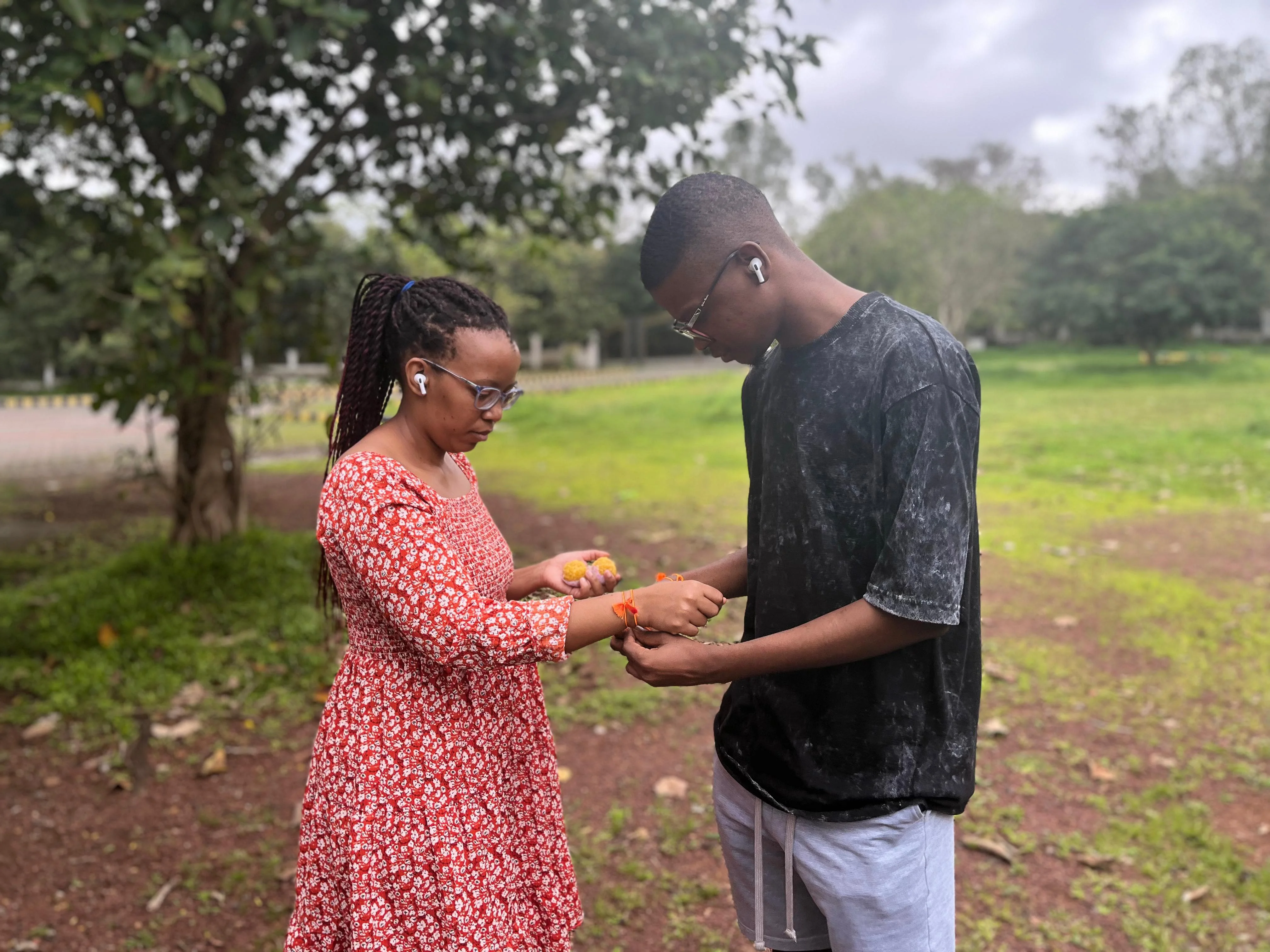Mangalore University, August-As the Rasksha Bandhan month comes to the end two international students from Botswana schooling at Mangalore University Artiee Artfield Mbanga and Gagoitsiwe G. Pinaemang reflects on the celebration for the first time of Raksha Bandhan in India which they attended at Mangalore University, Konaje.
“It was a fantastic celebration that opened my eyes and touched my heart in ways I didn’t expect. I assumed it would just be a gathering, but it turned out to be an important cultural education about love, family, and gratitude. In a world where people often wait until it is too late to appreciate one another, Raksha Bandhan stood out to me as a reminder to celebrate relationships while we are still alive to feel the joy,” said Pinaemang. At first, she thought it was a simple ritual, but when she did further research by asking friends she realised it is far more significant as it was about recognizing loved ones, valuing them, and openly expressing gratitude for their presence.
“Back home in Botswana, our ways of showing love and unity are different, shaped by our traditions and values. We often celebrate family during gatherings, meals, and ceremonies, where we express care through storytelling, songs, or acts of kindness. But Raksha Bandhan introduced me to a beautiful tradition that is deeply rooted in care, respect, and togetherness, celebrated with a unique symbolism with tying of the red ropes. I could see how this festival brought families and friends closer. It wasn’t about material gifts or formalities, it was about genuine love and acknowledgement. For me, tying a rakhi was symbolic; it went beyond blood relations. It meant cherishing the bonds that give us strength, whether they come from family or from the friendships we build along the way,” said Mbanga. He further added that when he saw the poster on the group he did not know what it was all about but he joined the celebration anyways, it was indeed a good new experience of Indian culture.
Raksha Bandhan’s genuine beauty and beyond the ceremonies
Raksha Bandhan is a distinct celebration of love, protection, and closeness with family. This celebration, held on the full moon day of the Shravana month (July-August), elegantly depicts the sacred bond between brothers and sisters. On this special day, sisters tie a colorful thread, called a rakhi, on their brothers’ wrists as a sign of love, affection, and protection. In return, brothers give gifts and promise to support and protect their sisters.
The fundamental rite consists of sisters tying a decorative string, known as a rakhi, around their brothers’ wrists. This symbolic gesture indicates affection, prayers for well-being, and a desire for safety. In exchange, brothers swear to protect their sisters and frequently give them presents as a symbol of their commitment. While the practice may appear simple, its cultural significance and emotional resonance have made Raksha Bandhan one of India’s most revered rituals.
The fact that this festival is so inclusive adds to its significance. Raksha Bandhan is not reserved for blood siblings or close friends, hence increasing social bonds and encouraging unity. The festival’s meaning has expanded in recent years, with many people now celebrating it as a reminder of mutual respect, care, and duty that transcends gender roles and traditional limits.
Beyond the ceremonies, Raksha Bandhan’s genuine beauty rests in the principles it represents. It emphasizes the value of developing connections, keeping promises, and forming bonds of trust and love. In an age where life moves at such a rapid pace, the festival encourages individuals to pause, reconnect, and express thanks to the people who are most important in their lives.

